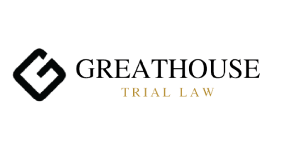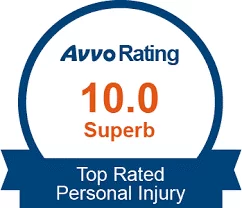Sometimes, going to work is the most dangerous thing you can do. Working in high-risk environments, such as factories, construction zones, farms, and engineering facilities, puts you at a greater risk of suffering from a severe workplace injury. Unfortunately, over 2.8 million nonfatal workplace injuries and illnesses occurred in 2018 alone.
Employers have a responsibility to keep their employees safe, make them aware of risks involved with their jobs, and help them receive compensation for any injuries they experience.
However, navigating the workers’ compensation process can sometimes feel challenging, especially if you are already dealing with the aftermath of a work-related injury.
Read ahead to learn more about Georgia’s workers’ compensation law and how a workers’ compensation lawyer from Greathouse Trial Law in Atlanta could help you through the reimbursement process.
What Is Georgia’s Workers’ Compensation Law?
Workers’ compensation is an insurance program that employers pay for to provide employees with benefits following a work-related injury or illness. These benefits help injured workers rehabilitate from their injuries, return to work, and cover the necessary expenses during their recovery.
Georgia’s workers’ compensation law states that employees must begin receiving compensation coverage on their first day of work. The law requires almost every employer to offer workers’ compensation benefits to both part-time and full-time employees, ensuring that workers have coverage in the case of an injury or illness.
Additionally, the Workers’ Compensation Act requires employers to provide prompt disability and medical benefits within a reasonable timeframe following the injury. Offering these benefits prevents employers from being liable for workplace accidents.
Employees’ Rights Under Workers’ Compensation
Georgia employees have several rights under the state’s workers’ compensation law. Specifically, employees must be able to access the following benefits from workers’ compensation:
- Compensation for rehabilitation and lost income
- The choice between six different healthcare providers and the option to switch providers once
- Compensation for medical treatment bills, medication, physical therapy, and any necessary travel
- Full income for the first seven days of missed employment
- Up to $525 per week for as long as they are unable to work following a catastrophic injury
- Up to $525 per week for up to 400 weeks of unemployment following a non-catastrophic injury
If a worker dies due to a work-related illness or injury, his or her family may be able to receive up to $7,500 to cover the cost of the funeral, along with up to $525 per week.
If you have suffered from a work-related injury, gaining compensation from your employer is one of the most important steps you can take toward your recovery.
Injuries and Illnesses That Fall Under Workers’ Compensation
Numerous injuries fall under the workers’ compensation insurance that employers must offer to their employees. Generally, any injury or illness that an employee experiences due to workplace conditions or duties may fall under compensation insurance.
Some of the most common injuries that qualify for workers’ compensation claims include:
- Lacerations
- Contusions
- Sprains
- Broken bones or fractures
- Burns
- Slips or falls
- Vehicle accidents
- Exposure to hazardous materials
- Eye injuries
Additionally, a few common illnesses that often qualify for workers’ compensation include:
- COVID-19
- Cardiovascular diseases
- Cancer
- Asthma or other respiratory conditions
- HIV/AIDS
It is often more challenging to prove that an illness resulted from a workplace accident than an injury. Hiring a workers’ compensation attorney can ensure that you provide the most compelling evidence for your illness or injury case.
What Compensation Can You Receive From an Accident at Work?
If you have suffered from a workplace injury or illness, you may be able to receive compensation from your employer to cover various expenses involved. A few common expenses that workers’ compensation covers include:
- Loss of ability to work
- Medical bills
- Lost wages
- Pain and suffering
- Rehabilitation
- Funeral expenses
However, in order to obtain compensation from your employer, you must follow specific protocols regarding work practices and reporting injuries. For example, you may only be able to receive workers compensation if you:
- Followed all safety regulations
- Reported your accident soon after it happened
- Attempted to return to work as soon as you could
Some employers may try to avoid providing compensation to employees for unsound reasons. Therefore, the best way to receive the most compensation from your employer is to hire a skilled personal injury attorney to represent your case.
Workers’ Compensation Attorney Near Me in Atlanta, GA
At Greathouse Trial Law, we understand the frustration and pain that come with workplace injuries and illnesses. When you hire our team of professional personal injury attorneys, you can feel confident that we will represent you well in court and help you secure a fair amount of compensation from your employer.
We serve clients throughout the Greater Atlanta, GA, area, and we’re looking forward to working with you. Contact our Greathouse Trial Law team today at 678-310-2827 to schedule your consultation with a member of our competent attorney team.
Copyright© 2021. Greathouse Trial Law. All Rights Reserved
Disclaimer: The information in this blog post (“post”) is provided for general informational purposes only, and may not reflect the current law in your jurisdiction. No information contained in this post should be construed as legal advice from the individual author or the law firm, nor is it intended to be a substitute for legal counsel on any subject matter. No reader of this post should act or refrain from acting on the basis of any information included in, or accessible through, this post without seeking the appropriate legal or other professional advice on the particular facts and circumstances at issue from a lawyer licensed in the recipient’s state, country or other appropriate licensing jurisdiction.
Greathouse Trial Law
260 Peachtree Street NW
Suite 803
Atlanta, GA 30303
(678) 310-2827
https://atltriallaw.com/


